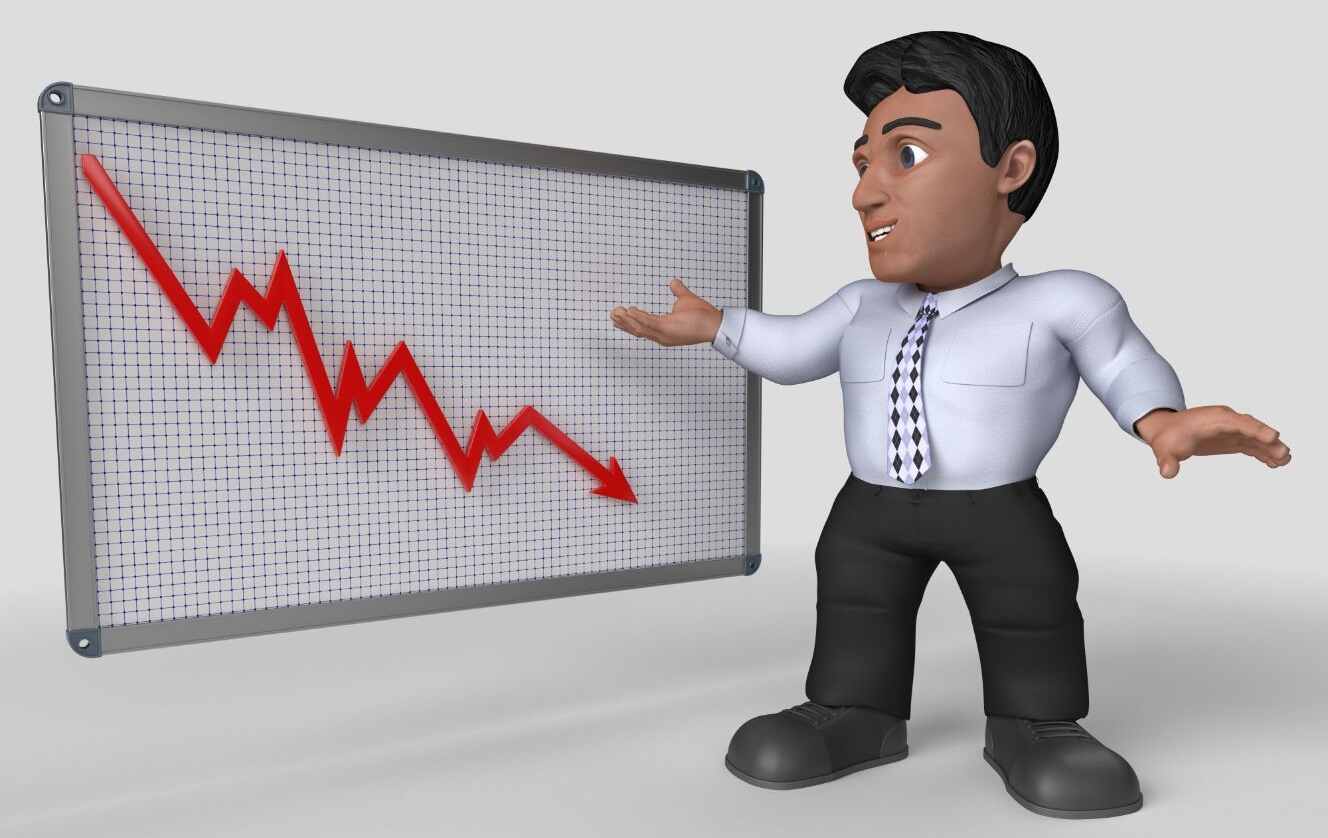Understanding why the Indian stock market is down involves analyzing a complex interplay of domestic and global factors. This blog delves into the major reasons causing the recent downturn, touching upon various economic, political, and social elements that influence the stock market.
Major Factors Behind the Indian Stock Market Down turn
1. Global Economic Slowdown
- Sluggish Growth in Major Economies: Slowdowns in major economies like the US, China, and the EU can have a ripple effect on emerging markets, including India.
- Trade Tensions: Ongoing trade tensions between major economies, particularly between the US and China, create uncertainty in global trade, impacting export-driven economies like India.
2. Rising Inflation
- Commodity Prices: Increasing prices of essential commodities, such as crude oil, can lead to higher inflation, affecting corporate profit margins and consumer spending.
- Supply Chain Disruptions: Post-pandemic supply chain issues have led to increased costs for raw materials and logistics, further fuelling inflation.
3. Interest Rate Hikes
- Central Bank Policies: The Reserve Bank of India (RBI) and other central banks globally have increased interest rates to combat inflation, making borrowing more expensive for businesses and consumers.
- Impact on Investments: Higher interest rates often lead to reduced spending and investment, slowing down economic growth.
4. Political and Economic Uncertainty
- Policy Changes: Sudden changes in government policies, such as taxation or regulations, can lead to market volatility.
- Geopolitical Tensions: Regional conflicts and political instability can affect investor confidence and lead to capital outflows.
5. Corporate Earnings
- Quarterly Results: Poor corporate earnings reports can trigger sell-offs, contributing to the Indian stock market downturn.
- Sector-Specific Issues: Problems within key sectors, such as banking or IT, can have a significant impact on the overall market sentiment.
6. Foreign Institutional Investors (FIIs)
- Capital Outflows: When FIIs withdraw their investments from the Indian market, it can lead to a sharp decline in stock prices.
- Exchange Rates: A weakening rupee can exacerbate the situation as foreign investors repatriate their funds.
7. COVID-19 Pandemic
- Economic Disruptions: Ongoing effects of the pandemic, including lockdowns and restrictions, continue to disrupt economic activities and affect investor confidence.
- Health Crises: New variants and waves of infections can lead to renewed economic uncertainty and market volatility.
Table of Indian Stock Market Down
| Factor | Description | Impact on Market |
|---|---|---|
| Global Economic Slowdown | Sluggish growth in major economies, trade tensions | Decreased export demand, investor uncertainty |
| Rising Inflation | Higher commodity prices, supply chain disruptions | Reduced corporate margins, lower consumer spending |
| Interest Rate Hikes | Increased borrowing costs, reduced investments | Slower economic growth |
| Political and Economic Uncertainty | Policy changes, geopolitical tensions | Market volatility, capital outflows |
| Corporate Earnings | Poor quarterly results, sector-specific issues | Negative market sentiment |
| Foreign Institutional Investors | Capital outflows, exchange rate fluctuations | Decline in stock prices |
| COVID-19 Pandemic | Ongoing economic disruptions, health crises | Renewed market volatility |
FAQs
Q1: Why is the Indian stock market down?
A1: The Indian stock market is down due to a combination of global economic slowdown, rising inflation, interest rate hikes, political and economic uncertainty, poor corporate earnings, capital outflows by Foreign Institutional Investors, and ongoing disruptions caused by the COVID-19 pandemic.
Q2: How do global economic factors affect the Indian stock market?
A2: Global economic factors like slowdowns in major economies, trade tensions, and rising commodity prices impact India’s export demand, investor confidence, and corporate profit margins, leading to market declines.
Q3: What role does inflation play in the Indian stock market downturn?
A3: Rising inflation, driven by higher commodity prices and supply chain disruptions, reduces corporate profitability and consumer spending, negatively affecting the stock market.
Q4: How do interest rate hikes impact the stock market?
A4: Interest rate hikes make borrowing more expensive, reducing spending and investments, which slows down economic growth and leads to stock market declines.
Q5: Can political and economic uncertainty cause the stock market to fall?
A5: Yes, sudden policy changes, geopolitical tensions, and political instability create uncertainty, leading to market volatility and capital outflows.
Understanding why the Indian stock market is down requires a comprehensive look at various factors, both domestic and international. By analyzing these elements, investors can better navigate the complexities of the stock market and make informed decisions.
